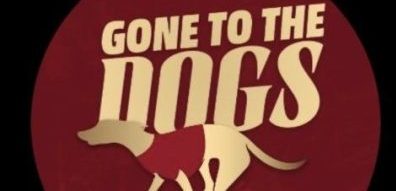
Michael Watts MRCVS
“The important thing in Life is not triumph, but the struggle; the essential thing is not to have conquered but to have fought well. To spread these principles is to build up a strong and more valiant and, above all, more scrupulous and more generous humanity”.
While the sentiments smack of the ethos of English public schools, of the world of Tom Brown’s Schooldays or of Billy Bunter or even Jennings and Derbyshire, they are in fact the thoughts of the redoubtable Pierre de Coubertin, the French baron what resurrected or reinvented the Olympic Games in 1894. That was then, way back when.
A lot of water has flowed under the bridge since then and people’s attitudes and outlook have changed in the meantime. Take for instance Paula Radcliffe and Jonathan Edwards, whose world-beating efforts on track and field appear to be in danger of being stricken from the record books if the proposals agreed last weekend by European Athletics and endorsed by Lord Coe come to fruition.
All records posted before 2005 are to be set aside because their bona fides cannot be confirmed by testing stored blood and urine samples from the competitors as the International Amateur Athletics Federation only began to retain such samples a dozen years ago. Far from taking the Coubertin line that it is not the winning that matters but the taking part, Ms. Radcliffe is reportedly offended by the proposal, which she not unreasonably says “unfairly damages the reputation of many innocent athletes”.
It is hard to argue with the lady, who seems about to see the pinnacle of her athletic career expunged from the history books because she cannot now prove herself innocent of any putative doping offence. I for one would not even dream of trying. It all sounds far too much like being presumed guilty until proven innocent for my liking, the presumption of innocence being one of those principles like democracy, motherhood and apple pie on which civilised society is built.
We may live in a post truth world of alternative facts, but it is, as soon-to-be-former triple jump record holder Johnathan Edwards reportedly says, a “wrong-headed and cowardly one”. I am not suggesting that all these elite athletes were obsessed with winning but I don’t see many of them accepting the loss of their record-breaking status with equanimity on the basis that they gave it their best shot and that is all that matters.
Anyway when the bold Coubertin suggested that the motto of the modern Olympic should be Citius, Altius, Fortius or faster, higher and stronger he wasn’t exactly putting in a word for the Also Rans. When push comes to shove, given the choice, how many athletes would really wish to be like Eddie “The Eagle” Edwards, famous for coming last?
Take for example last Saturday’s Wembley bout between Andrew Joshua and Wladimir Klischko, touted in the sport’s usual self-effacing manner as the biggest thing in boxing since Lennox Lewis put Mike Tyson on the canvas fifteen years ago if not since the Thrilla in Manila way back in ‘75.
For sure part of the story was about watching two of the finest heavyweights currently plying their trade but equally it was about winning and losing. Would the Young Lion assert his authority and take all the three titles that were up for grabs, or would the Old Master stage a comeback of epic proportions and knock him off the top of the rankings?
With no disrespect to the two contestants, who seem to be a pair of very decent honourable guys less given to trash talk than many of their ilk, if the fight had gone the distance and somehow been declared a draw, I suspect the disappointment would have been pretty much universal. It simply doesn’t work without a winner.
Except that is in ‘the Winter Game’. At the end of a hectic whistle-stop four month qualifying period sixty-four dog puppies assembled at Powerstown Park, Clonmel to contest the final phase of the Boylesports Derby. At this stage no quarter is given and none expected. By the afternoon of the Monday of the National Coursing Meeting those sixty-four qualifiers had been whittled down to just two, the litter brothers Reiker’s Island and Blades of Fire.
These two had been on the shortlists of many of the cognoscenti since Reiker’s Island skated up at his home meeting at Killucan in mid-October. The clash of these titans in the final would, you might have thought, have had the punters on the edge of their seats with excitement and anticipation.
A chance would be a fine thing! Because the two dogs were in the same ownership, according to Irish Coursing Club rules, the stake was divided at this point and no final was run. The show is over folks, safe home, see you again next year, and like that. Such damp squibs have a long and some might say ignoble history. Ted Delaney’s “Royal Casino” and “Tremando” divided the Derby in 1945 and Newry maestro Jack Mullan’s “Millies Toast” and “July The Fourth” followed suit in 1960.
There was no final again in 1972 when Sir Rupert Mackeson’s “Newmore King” and “Heathermore King” divided and the same disappointing outcome recurred just nine years later when the Ballydoyle Syndicate’s “Believe Him” and “Knockash Rover” were due to meet in the final of the 1981 renewal.
Outsiders might not unreasonably imagine that such an outcome is best avoided, but in fact the Rules of the Irish Coursing Club make a division before the final more likely than you might have guessed. Rule 102.A as amended in 2002 states that “where an owner or partnership has two greyhounds entered in the Stakes they shall be guarded in the draw, one in the top half and the other in the bottom half of the draw”.
Rule 102.B refines this general principle, requiring that “where an owner has two dogs in a Stake, there shall be a preliminary draw to decide which will be placed in the top half and which will be placed in the bottom half of the programme” and further “in the case of the National Meeting , there shall be a further draw to decide what position in the draw such guarded greyhounds would occupy in the top half of the draw”.
A cynic might suggest that the Rules dictate that a series of draws should be made to make sure that the greyhounds are not drawn in a genuinely random manner, but I for one could not possibly comment. Interestingly, while in all the four historic instances the dogs involved were in the same ownership when they qualified, Reiker’s Island and Blades of Fire only came into the same ownership after their attendance at the National Meeting was certain.
Not only were the sporting instincts of the spectators denied the satisfaction of seeing the Classic run out but the division of the stake before the final could prove a costly business. With no final run, the bookmaking fraternity found themselves having to pay out on both finalists. With no opportunity to lay off some of their liabilities in such circumstances, the I.C.C. allows them to soften the blow by only paying out the odds on half the stake.
Guarding ensured that by the time the littermates had advanced to the Quarter Final stage, Reiker’s Island was down to run in the first course of the round and Blades of Fire in the last. The news that Take Three had been withdrawn from the Derby on morning of the final day of the meeting meant that Blades of Fire would receive a bye into the semi-final and the likelihood of the two brothers meeting in the final, which would therefore be divided, took a big step closer.
Maths was never my strong point but in the circumstances the odds of 6/4 generally offered about the Blades of Fire the jolly and 3/1 available against Reiker’s Island hardly seem overly generous in the circumstances but the bookies did not get rich by giving it away, now did they? By the time the two brothers’ participation in the semi-finals was assured they had hardened to even money and 6/4 respectively.
You pays your money and you takes your chance.
To be fair, the Irish Coursing Club applies the same crazy logic, if indeed logic is the word for it, to the situation where one greyhound is withdrawn from the final of a stake through injury or illness, leaving the surviving finalist to be declared the winner without having to run a final course. Again the bookies have to pay out on both dogs as if they were both winners, but are permitted to soften the blow by only paying out the odds to half the stake.
This situation cropped up in the final of the 2002 Derby when Cillowen Harbour was withdrawn gruelled from the final leaving his litter brother Murty’s Gang to take the spoils. Widespread grumbles from the layers on that occasion were replaced by audible howls of protest just one year later when the well-backed Bar None from Brendan Matthews’ Townview Kennels had to be withdrawn injured from the final of the Derby in favour of Danagher’s Best.
Rumours that some bookmakers were planning to give the National Meeting a miss in future if “something” was not done about the situation were rife. Thankfully no further divisions proved necessary until this year.
Whose interests are best served by the current system of paying out on both finalists when there is a divide? Successful punters find their winning slashed at the last minute, although I suppose those who backed a greyhound that could not take its place in the final are happy not to recoup some of their potential losses. Bookmakers have to pay out on two greyhounds instead of one, which definitely does not make them happy.
In the case of the Trial Stakes by winning which greyhounds qualify for the classics at Clonmel, the Irish Coursing Club’s Rule 162 states that “all trail stakes shall be run out unless, in the opinion of the Stewards of the meeting, any of the greyhounds remaining in are, through accident, distress, or other legitimate cause, unfit to compete.
The greyhound which remains in shall be declared the winner”. Simply put, the finalists run if they are fit to compete and one of them wins out. That works for me, so what would be wrong with applying the same standard to the coursing classics?
Why not let the spectators see a final and enjoy their day out to the full, let the winning punters keep all their dough and let the bookies only pay out on one dog? With the Irish Coursing Club Provincial Meetings and the Club’s A.G.M. in the offing an opportunity to sort all this out presents itself. It ain’t rocket science.
(Exit, pursued by Bear)













